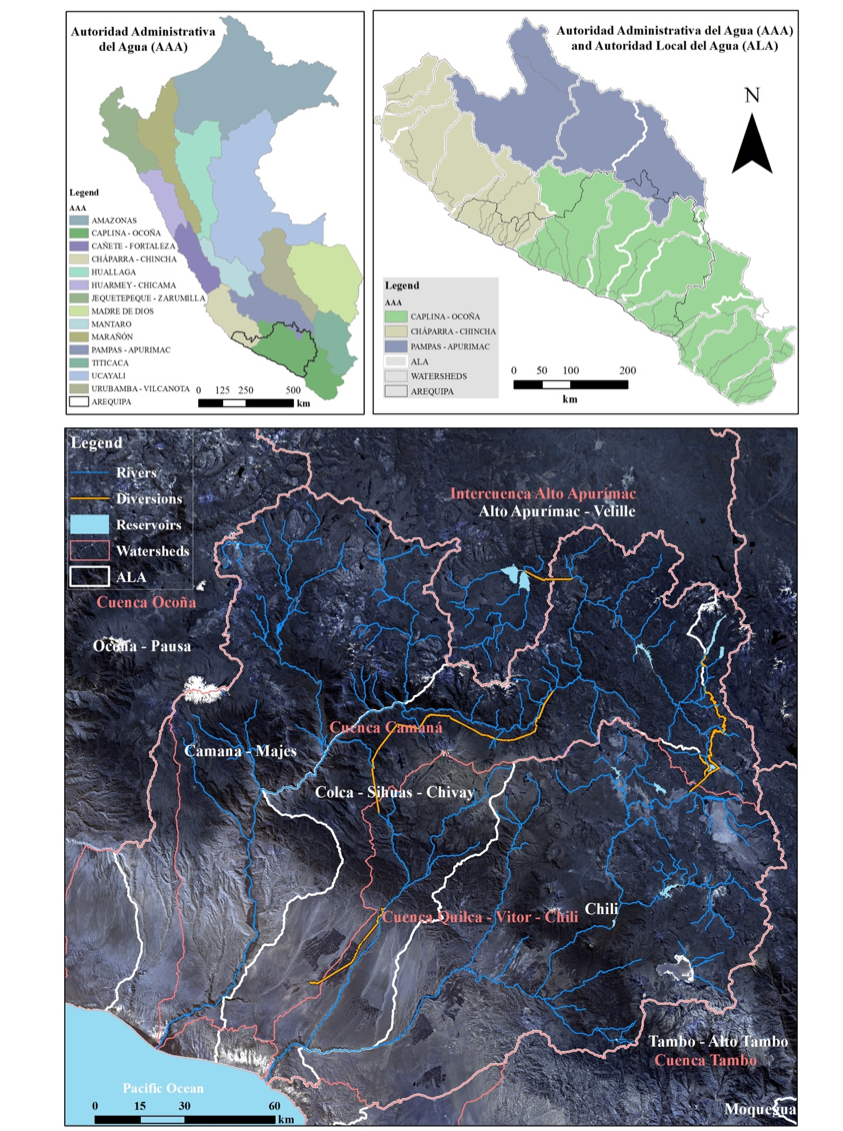Post-doc Dr. Ruxandra Popovici is evaluating formal and informal institutions for water management in Arequipa. Through extensive fieldwork from October 15 to December 7, 2018. She collected qualitative data using semi-structured interviews in four communities in the Colca Valley. The purpose of this research was to answer the following research questions: 1) How do community members adopt, change, or reject the 2009 Ley de Recursos Hídricos? 2) What effects did the 2009 Ley de Recursos Hídricos have on decision making, conflict resolution, and informal institutions.
Through our team’s collaboration between the UNSA and Purdue co-PIs, coordination with the Data Management Committee, and extensive conversations with water managers in Peru, described above as part of Objective 1, we are developing a clear picture of the current formal water management framework in Arequipa, including natural hydrograph units, anthropogenic water basins and the location and volume of water transfers. This can be summarized in the following map of water management systems produced by Andre Moraes and Fariborz Daneshvar.


